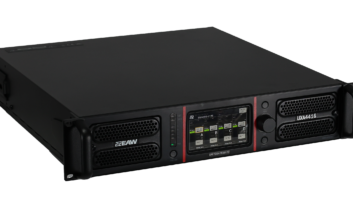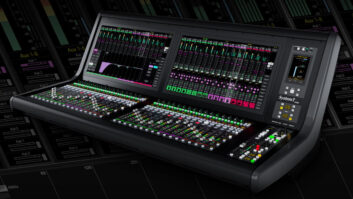PROPOSALS AND PROFITS
Mar 1, 2002 12:00 PM,
ALAN KRUGLAK
LIKE IT OR NOT, A PROPOSAL REPRESENTS A BINDING contract between you and your client. It describes what you are providing, your liabilities, how you will be paid for your services, and all other particulars that comprise a formal business agreement.
Unfortunately, many proposals are too vague regarding what is and what is not included, and once the ink is dry most clients are only interested in delivery of their systems, not renegotiating terms. They do not want to hear about this unanticipated expense or that extra cost. Yet the omission of certain basic expenses from many proposals is one of the key reasons so many projects go over their initial cost projections.
The problem of vagueness is not limited to the systems integration industry. The marriage contract, for example, is extremely vague. That famous contractual line, “for richer or poorer, in sickness or in health,” doesn’t exclude any future costs or problems. Of course, that does not mean you can’t limit your exposure in a marriage contract. One of my former employees inserted a condition in his marriage contract that stated if his wife exceeded 140 pounds, or if he exceeded 190 pounds, the marriage contract would become null and void. Even Henry VIII was smart enough to modify his marriage contract before consummation. His caveat for the bride was, “No male heir, no need for a head.” Gruesome as it was, his condition opened up the legal world to a new school of sharks.
The prenuptial agreement, difficult as it sometimes is to negotiate, can put limits on the otherwise wide-open contract in the event of unforeseen problems.
MANAGING YOUR EXPOSURE
in systems contracting, while there is no foolproof way to eliminate your exposure to unanticipated costs, there are ways to reduce risk in your proposal. To minimize this risk, you may want to add some of the following clauses to the terms-and-conditions section of your proposal, under “Owner-Provided Items.”
Power. At contractor-designated locations, regulated, clean 110VAC power and an isolated ground, connected to the cold water building entry or equivalent, must be provided by owner.
We viewed this clause as essential, since any power fluctuations could seriously impair the operation of our electronics. If clean power wasn’t provided, it could cost us a lot of money. We usually circumvented the problem by requesting that our systems be placed on the clients’ UPS systems, a request that was surprisingly almost always granted. Alternatively, we could have included a UPS in the bid, but it proved too costly for many applications.
Equipment Installation. Client must provide space and a suitable operating environment for the specified equipment.
Most clients graciously gave us a suitable operating environment for our equipment. But some were not as educated about electronics as others, insisting on putting control equipment next to large electrical transformers (which generate electromagnetic interference) or in areas that lacked adequate dust filtering or air conditioning.
Documentation. As-built drawings and other detailed engineering documents can be provided as above-contract items.
The preparation of as-built drawings was an incremental cost of business. Without limits, clients would ask for an unlimited number of submittals and reproductions, adding thousands of dollars of cost to a project. As a rule, we gave the client one set of submittals (with five copies), followed by one set of as-builts.
Lightning Protection. Although our equipment includes the original manufacturer’s standard lightning and power protections, we provide no guarantee against damage due to either of these sources. Additional protection is available and may be desirable.
One of the areas that generated the greatest level of frustration to our clients was damage from lightning strikes, an act of God that was impossible to prevent. We started to include this clause in our proposals after a series of lightning hits on certain customers during one summer with especially violent weather. Prospects expressed concern, saying that if our system was so good, it shouldn’t fry during thunderstorms. They had neglected to mention that all of their other communication systems were also getting fried during the same storms.
Depending upon the client, you might be setting yourself up for additional costs or potential litigation. Our clause excluded us from liability, while educating the client that there was little we could do unless they wanted to spend large sums for lightning protection equipment.
Finishes. Two standard finishes are available: brushed aluminum (US28) and duronodic bronze. Other custom finishes, unless specified, are available as above contract items.
I’ve always been amazed at architects’ penchant for detail. They specify arcane finishes that have only been read about in Architectural Fantasy. They don’t seem to care about costs, only aesthetics and how your installation blends with the design of “their” building. To control costs, we limited our finishes on exposed products unless noted in the specification.
Parking. Client will pay for the cost of parking during system installation.
Because the cost of one day’s parking is usually a small amount, you may consider parking to be of minor importance. But the costs add up quickly when you have to park multiple vehicles in an urban area for a big project for days or weeks on end. In such cases, total parking expenses can run into thousands of dollars for a single project.
We began implementing this clause after incurring a $3000 parking expense while installing a large project located in the heart of Washington, D.C. Client response to this clause was mixed, ranging from some clients totally refusing to pay for parking while others providing designated space in their garages. Obviously, you won’t refuse a contract just because the client doesn’t want to pay for parking. However, if you don’t ask, you don’t get. It’s all part of the negotiation process.
these are only some of the clauses you can use in your proposal to protect yourself from unforeseen costs. Even though they sound simple and innocuous, clauses like these have the ability to more clearly define what you are providing your client. Ultimately, this gives you the power to increase profits and strengthen your competitive edge.
And if you don’t believe in the power of inserting clauses like these in your proposal, you can talk to Henry’s ex-wives for their opinions.
Management Perspectives are excerpted from the series of business books written by Alan Kruglak based on his experience operating a systems integrator and achieving gross margins of 54% and operating profits of 20%. For more information, contact Kruglak at 301/365-7522 or [email protected].







